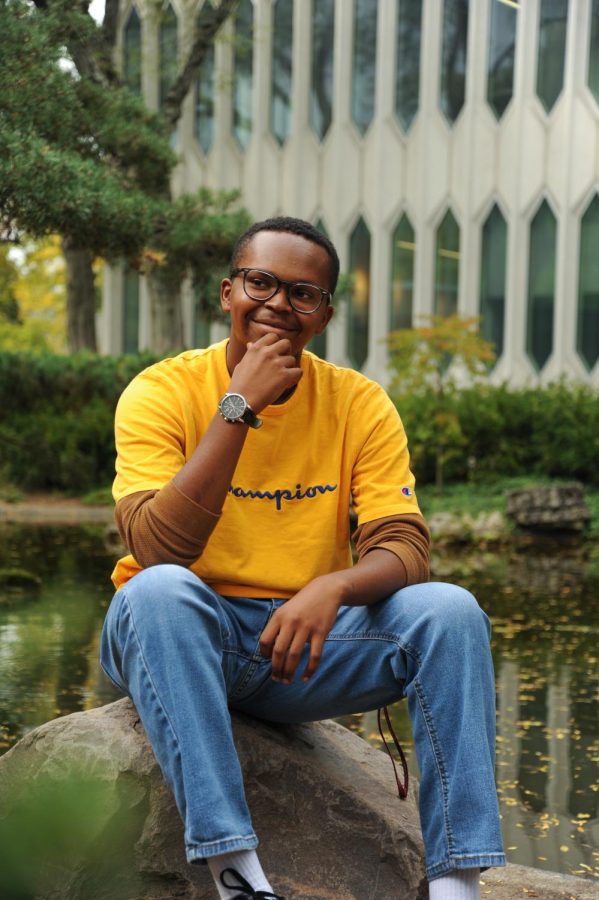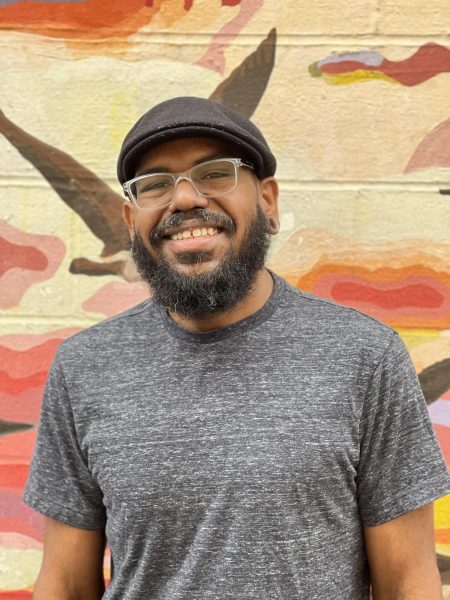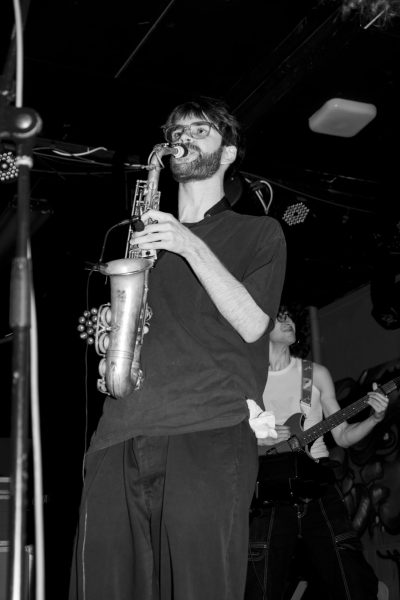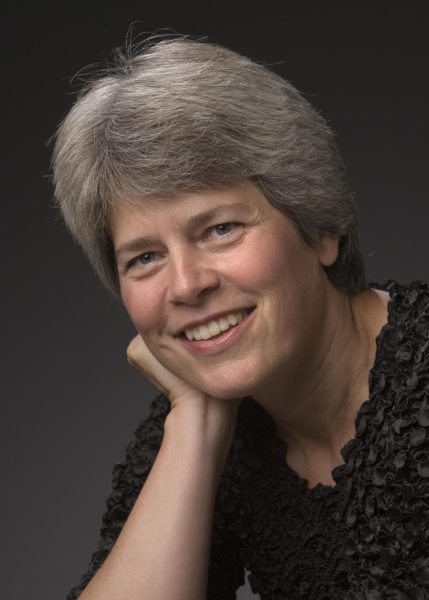Solomon Leonard, Jazz and Hip-Hop Violist
Solomon Leonard by Conservatory Pond
Hailing from Los Angeles, CA, second-year Viola Performance major Solomon Leonard engages with a variety of musical genres inside and outside of the Conservatory. Leonard studies and performs in both the Classical and Jazz divisions at Oberlin, and participates in one of the Performance and Improvisation Ensembles, which play music genres from around the world in an improvisatory style.
In addition to his college studies, Solomon has also released a hip-hop, viola-centric extended play titled “The Freshman Experience.” His latest EP “The Sophomore Experience,” will be released May 14, 2023.
This interview has been edited for length and clarity.
Could you start by telling me about your decision to do both musical genres? What’s it like to navigate the two musical worlds?
I am not technically a Jazz Performance major, but I act like one. I started by learning jazz jury tunes. Every jazz first- and second-year student is given a PDF of 50-something tunes at the beginning of the year. So I was like, “Okay, I’m gonna do that.” I started to do jazz toward the end of high school, but I wish I had started at the beginning. So, coming into Oberlin, I wanted to do both right from the start.
And then, in addition to that, I just made friends in the department. I was in Kohl Building, just hanging out and seeing the culture and going to jam sessions. As time moved along, I started doing different bands and just growing along with my peers. I learn a lot from them.
It’s not easy. I definitely do a few all-nighters a week to keep up with the workload, but I’m very passionate about this, so it’s all good work.
Do you think that one style influences the way you play the other?
Definitely. In jazz, you always have to be ready to be creative. Nowadays, when I play classical music, I always leave room for creativity. I look at Bach’s harmonic structure differently now. I can look at it more isolated in terms of each moment rather than as a whole phrase.
I think Bach was also a jazz musician in that he used textures, harmonies, and melodies that just keep going and going. There are so many small moments in a piece that get ignored when played in the traditional way. But if you look at that moment and ask, “What can I really do with this moment?” that’s really profound.
It’s because of jazz and because of my experience performing jazz and performing with the PI Ensemble that I get the confidence to be creative in the moment. Now, I have full confidence to try an idea regardless of whether it’ll work out or not. It’s 2022, you know. We have to experiment.
What do you think has been the biggest lesson that you’ve learned from doing that?
I guess that I’m just a musician. This is something I learned from Weedie Braimah yesterday. He said that musicians are only focused on one thing: music.
I love so many different kinds of music. I don’t like to just say I’m a classical, jazz, or hip-hop musician. I’m just a musician and all of these kinds play into each other naturally.
But it’s not about us, it’s about the listeners. Whether we think a performance is our best or our worst, it’s always about the listener.
I try to have that mindset because college starts you in a million different directions. For instance, you might have an assignment due on Thursday, so you pull an all-nighter, and then you have a concert on Friday, and you have to do it with no sleep. But if there’s a crowd, it doesn’t matter. It’s not about you.
Do you think Oberlin facilitates this kind of fusion between different musical genres?
I’ve been thinking about this a lot. I see the Conservatory as being split in three ways: the classical department, the Jazz department, and TIMARA. I don’t think any of them know what the other two are doing at any given point.
I think there are seeds that the Conservatory has planted, like the PI Ensemble, but I think there’s a way to come up with more ways to unite more of the departments, which can spark more creativity and give students a better worldview. Right now, each department is really separate. In the classical program, you have juries your first two years, then your junior and senior recitals. Most other solo opportunities happen only in studio class, so that means students may come through here and they may never be exposed to the amazing artistry in PI or the jazz building, or the Conservatory in general. That exposure should be built into the program.
What is it that draws you to music, generally?
I love that even when I think I’ve performed the worst performance of my life, another person in the audience has gotten something out of it. I love how music — and not just music, but art in general — is supposed to enhance life by its ability to inspire and connect people. I can put my best self out there in whatever kind of music I’m playing and can be assured that a listener can walk away feeling something really meaningful.
Is there else that you want to add about yourself, your life, music, or what inspires you?
I guess you could say that I’m trying to be like water — when it’s calm, it’s beautiful; when it’s excited or enraged, it’s a force to be reckoned with. That’s a Bruce Lee reference. Jazz language is all over classical music. Kurt Rosenwinkel released a Chopin album that arranged Chopin for jazz quartet, and it was incredible. That’s exactly what I mean in terms of the different styles influencing one another.







